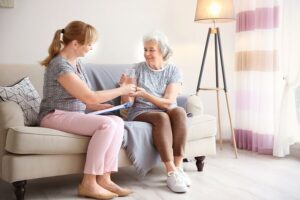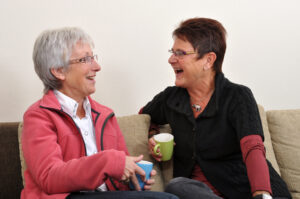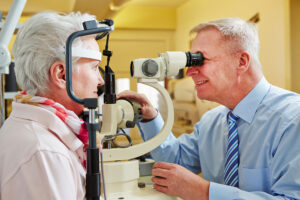Easy Daily Tips to Manage Diabetes
Managing diabetes as a senior aging in place requires them to be super proactive but this can be hard when they are living alone and struggling with memory problems. Elder care providers can help your loved one manage their diabetes, be proactive, and help them prevent complications from happening as they age at home. Diabetes is not the end of the world but if it is not properly managed a senior can experience terrible health problems and it can lead to loss of limbs and even death in extreme cases. That is why it is so crucial your loved one takes these health conditions seriously.
Here are a few things your loved one can do to manage their diabetes every day with the help of elder care.
Focus on Eating a Balanced Diet

Elder Care Hunterdon NJ – Easy Daily Tips to Manage Diabetes
Everything starts with your diet and this is true for managing diabetes as well. Seniors are more likely to develop diabetes due to age-related changes, such as reduced insulin sensitivity and an increased likelihood of being overweight or physically inactive. One of the best things a senior can do to manage weight, diabetes, and everything else is to eat healthy. This means your loved one should be eating tons of fresh foods, low sugar, high protein options. If they need help cooking diabetic-friendly dishes, this is something that elder care may be able to help them with. Family and friends can encourage seniors to eat better and make wiser choices as they age in place.
Monitor Blood Sugar a Few Times a Day
Your loved one needs to monitor their blood sugar every single day and this will help them focus on what to eat and when to eat. A senior may have a machine that pricks their blood to read their blood sugar or they may have a device that is connected to a tablet or phone app to view their blood sugar. If your loved one needs help remembering when to check their blood sugar, elder care can help with friendly reminders and even get your loved one on a routine that tells them when to check their blood sugar. When a senior is consistent they are more likely to remember to do something and this is a task that is extremely important to do every day.
Remember to Drink Fluids
Drinking plenty of water is essential for managing diabetes because dehydration can raise blood sugar levels. A senior should try at least 6-8 glasses of water daily to support overall health and glucose regulation. This can feel like a lot and not all seniors remember to drink fluids regularly. Elder care can help remind your loved one to drink more water and they can ensure that there is always something to drink and it is easily accessible for a senior. This can be a huge help when seniors need to focus on staying hydrated and managing their diabetes and blood sugar levels.








